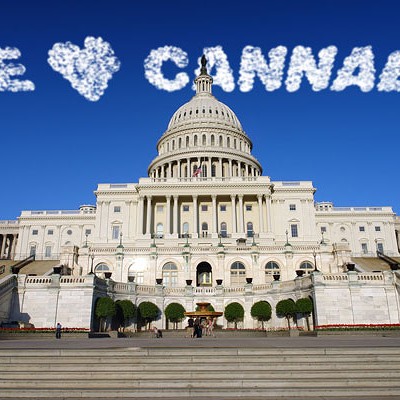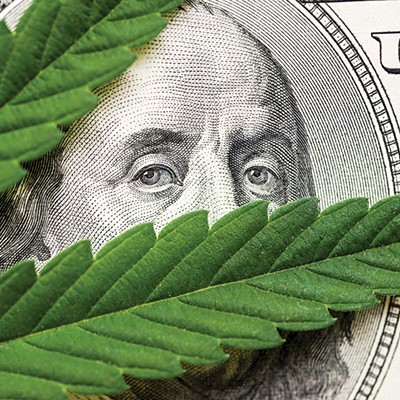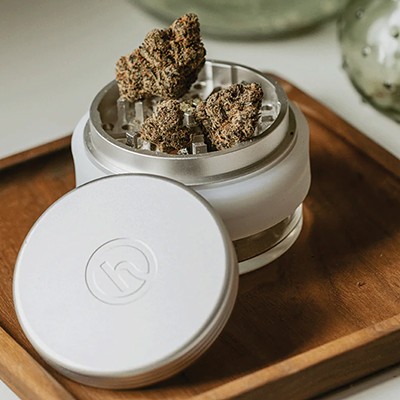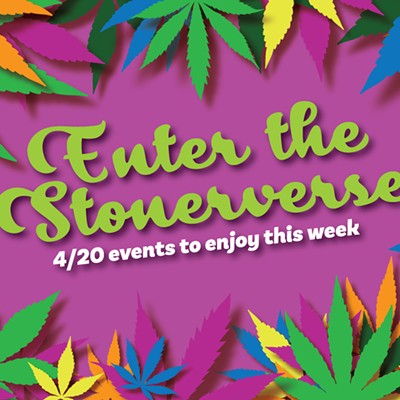It's the holiday season, and for many of us, it means time with family—and I don't mean the family you choose I mean the ones who may hit you up for a spare organ at some point because you're a genetic match. Those people. Yeah.
The time spent with them can make it a challenge to fully embrace the sentiment of the season, and have goodwill toward your fellow man/woman/they/them. That goes double for those I disagree with on some issues, which as of late is reeeeeeeeally hard. Hard like Wolverine's claws, which, for the sake of certain family members and their seasonal edition holly-crested MAGA hats, they should be grateful I do not possess. Serenity now.
Even though the majority of Americans favor legalization of cannabis, it's not unanimous, and thus most of us have a shared bloodline with a prohibitionist, who will gladly share how "legalizing all this goddamn dope" will unleash post-apocalyptic "End Of Days" scenarios, involving gay cannabis plants molesting children.
And while it may be tempting to have a second glass of wine (and don't be stingy with the pour) then respond with an Oscar Wilde-style bon mot such as "Fuck you, Cousin Carl," there's a better way. When the topic comes up, here are a few humble suggestions for making your case for cannabis with your prohibitionist family members.
Start by always using the term "cannabis" in place of "marijuana," unless speaking about regulatory agencies with it in their name. (i.e. Oregon Medical Marijuana Program). The first step to getting woke is language, and the racist origins of "marijuana" are well documented. Phase it out whenever possible.
"Even though the majority of Americans favor legalization of cannabis, it's not unanimous, and thus most of us have a shared bloodline with a prohibitionist, who will gladly share how "legalizing all this goddamn dope" will unleash post-apocalyptic "End Of Days" scenarios, involving gay cannabis plants molesting children." — JOSH JARDINE
tweet this
Fact: A regulated cannabis industry produces jobs. There are already 100,000 to 150,000 people employed by the cannabis industry nationwide, and it's estimated that by 2020, that could grow to 300K. That's based solely on the current number of states with a program, and doesn't account for other states that may pass legislation for their own. It also produces tax revenue for police, schools and drug treatment programs.
Talking point: Communities are stronger and safer when more of its residents are employed, and these are jobs that will stay in the state.
Snark option: You remember a job, Uncle Sal. That's what your wife has three of, so you can pursue your "art."
Fact: States with a regulated cannabis program have reduced alcohol consumption rates. A new study shows states with a medical cannabis program experience a 15 percent drop in alcohol sales. It's not a short term effect, with reduction still in place 24 months after the program began.
Talking point: The health risks associated with cannabis use are far fewer and less severe than those of alcohol use, and there are other associated benefits for public health and safety.
Snark option: Looks like your husband is trying to make up for that 15 percent reduction tonight, Debbie.
Fact: States with a regulated cannabis program have reduced opioid consumption rates. Everyone, regardless of political affiliation, agrees we are in the midst of a national opioid crisis—so it's awesome that states with medical cannabis programs see an average reduction of opioid related hospitalizations of 23 percent. Another study showed that those same states saw a reduction of opioid-related deaths by 25 percent.
Talking point: We don't want people in the hospital or dying from opioids, and cannabis can really help with those things.
Snark option: None. This is a nightmarish tragedy that we are not sufficiently addressing.
Fact: Some states, such as Alabama and Georgia, have very specific regulated cannabis programs that allow patients, such as those suffering from seizure disorders, to use high CBD/low THC products for relief.
Using non-psychoactive cannabis products such as high-CBD oils to treat children with seizures is something happening in conservative southern states, even in Attorney General Sessions' home state of Alabama. Even they recognize that cannabis has medical uses.
Talking point: If it can help sick children and not get them high, there isn't any harm in allowing it.
Snark option: Aunt Suzy, speaking of sick children, does your sneezing need to touch every single roll in the basket?
























